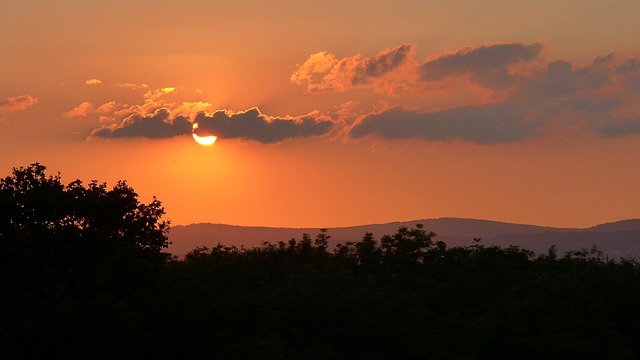
Publicado dia 04/04/2025
wanted slot 🌹 A Quest for the Elusive Slot: Understanding the Dynamics of Demand in Disappearing Spaces

wanted slot, 04/04/2025
Olá, pessoal! Neste artigo, vamos explorar o conceito de wanted slot, e também oferecer uma explicação sobre wanted slot. Acompanhe e tire suas dúvidas!
As urbanization continues to reshape our cities, the concept of "slots" – defined here as specific and often limited spaces or opportunities for various uses ranging from parking to recreational activities – has emerged as a focal point of concern for urban planners and community organizers. The competition for these coveted slots is intense, often leading to a phenomenon known as the "wanted slot" syndrome, where individuals and organizations alike find themselves in an unending quest for these increasingly scarce resources. This article seeks to unpack the intricacies of managing these spaces, the societal implications of scarcity, and the innovative solutions being proposed to address these growing concerns.wanted slot
Esse ponto é crucial para nossa discussão, pois nos ajuda a aprofundar o entendimento sobre wanted slot.
The evolving landscape of urban environments is marked by a stark contrast between the burgeoning demand for spaces and the finite nature of these slots. In bustling metropolitan areas, where business, residential, and recreational needs collide, the battle for space is palpable. Parking slots, designated green areas, and public gathering venues are just a few examples of resources that have grown scarce as populations swell and lifestyles change. This situation results in heightened frustration among residents and a sense of urgency for solutions, particularly as the community dynamics hinge on the availability of these crucial slots.wanted slot

A scientific examination of this phenomenon reveals several underlying factors contributing to the demand for slots. Population growth within urban centers is undoubtedly a significant driver, but it is accompanied by changing social behaviors that prioritize the usage of shared spaces. In contrast to past generations that may have favored private ownership and individual space, today’s urban dwellers often seek environments conducive to social interaction and collective experiences. This cultural shift has intensified the race for spaces that foster community engagement, amplifying the challenge of meeting these evolving needs with available resources.
Simultaneously, economic pressures play a vital role. The rapid increase in real estate prices forces urban planners and governments to rethink the allocation of limited resources. Furthermore, the introduction of technology in everyday life has added complexity to the demand for slots. The rise of e-commerce has transformed traditional shopping patterns and the use of public spaces, enhancing the necessity for adaptable slots to accommodate delivery systems and new retail models. wanted slot
As communities grapple with the ramifications of this competition, the implications extend beyond mere access to physical spaces. A lack of available slots can exacerbate social inequalities, as underserved populations often face the brunt of restricted access to essential resources, such as parks or recreational facilities. This inequality perpetuates a cycle where the voices of the marginalized become drowned out in the cacophony of urban development. It raises an urgent question: how do we ensure that the allocation of these wanted slots reflects the needs of a diverse population?wanted slot

Innovative approaches are emerging in response to these challenges. Urban planners and community leaders are collaborating on creative solutions aimed at maximizing existing spaces while introducing new slots to meet demand. For instance, repurposing under-utilized areas – such as vacant lots or neglected public parks – into multifunctional spaces can alleviate some pressure. By involving the community in these transformation processes, stakeholders not only address immediate needs but also foster a sense of ownership and responsibility among residents.
Moreover, cities are beginning to embrace technology as a means of optimizing space allocation. The integration of smart systems can provide real-time data on space usage, allowing for more efficient management of existing slots. This technology-driven approach has the potential to rebalance supply and demand, ensuring that spaces are utilized to their full potential, while also making them accessible to all community members.
Nevertheless, as our search for these elusive slots intensifies, it becomes essential for urban planners and decision-makers to adopt a holistic perspective that encompasses social, economic, and environmental factors. The dialogue surrounding the creation and management of wanted slots must involve various stakeholders, including community members, local businesses, and governmental organizations, to ensure a comprehensive understanding of the pressing needs and unique circumstances faced by different groups.
In conclusion, the dynamics of wanted slots underscore the intricacies of urban life and the interconnectedness of space with community well-being. As the quest for these opportunities continues, a caring approach rooted in inclusivity and sustainability will be paramount. Collaborative innovation and technology integration can pave the way for solutions that reflect the shared values and aspirations of all residents. Ultimately, by recognizing the significance of this challenge and addressing it with compassion and foresight, we can work towards a future where the elusive slot is no longer a point of contention, but rather a symbol of community prosperity and shared spaces.
A discussão sobre wanted slot e wanted slot chegou ao fim. O artigo resolveu seu problema? Esperamos vê-lo novamente em breve!